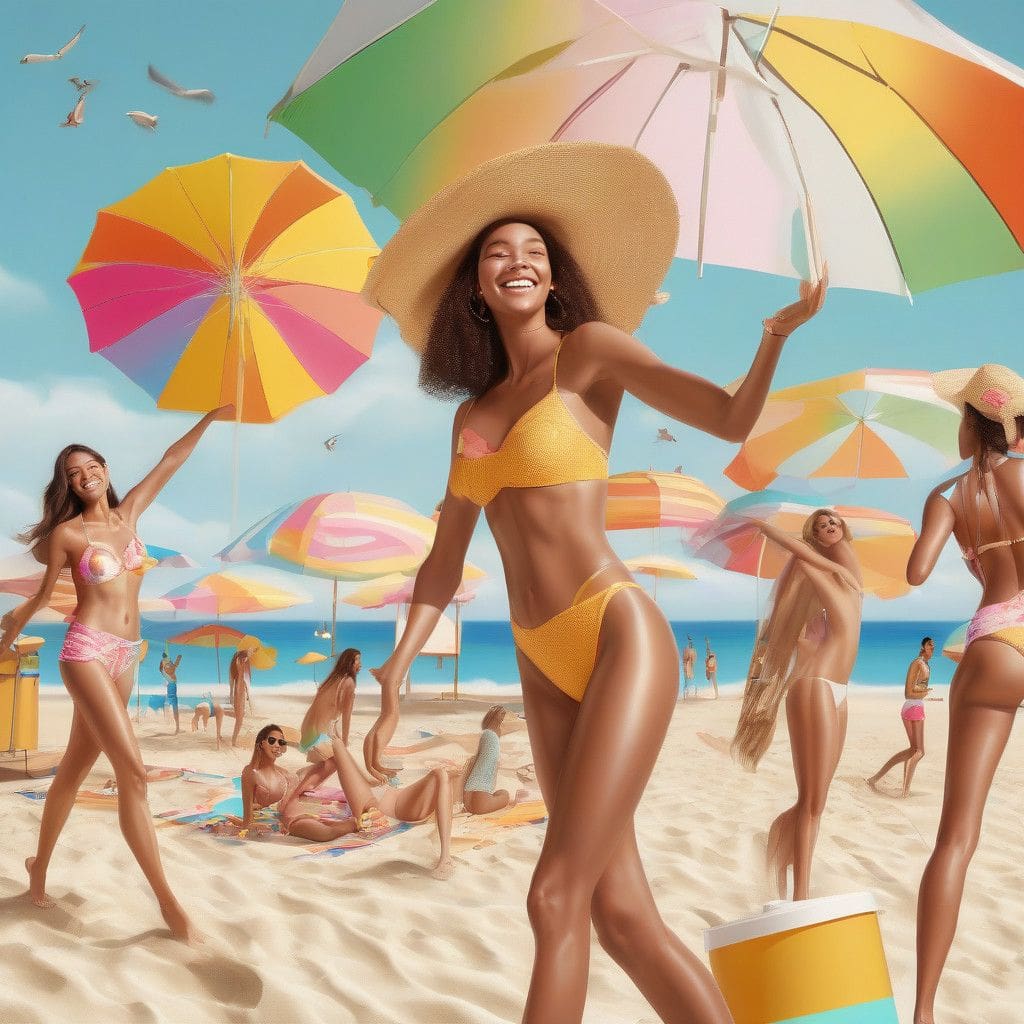Search for “sunscreen” on TikTok, and one name is bound to come up: Beauty of Joseon. This South Korean skincare brand, celebrated for its innovative products, has captured the hearts of influencers and consumers alike. With 16 of the top 20 videos about sunscreen on the platform and a staggering 1.7 billion views attached to its hashtag, Beauty of Joseon’s popularity is undeniable.
Founded just seven years ago, the brand experienced explosive growth, with revenue soaring from $83,000 in 2020 to an impressive $116.7 million in 2023. In a strategic bid to solidify its foothold in the US market, Beauty of Joseon is unveiling a pop-up shop in Los Angeles from November 8 to 16. This event marks a significant milestone as the brand anticipates further expansion, hoping to enter major US retailers by 2025.
The brand’s standout product is the Relief Sun: Rice + Probiotics sunscreen, which has become a viral sensation despite the fact that its active UV filters have not yet received approval from the US FDA. Its popularity, however, has not slowed its distribution; currently, it is primarily available online and at select boutiques and discount retailers. This lack of easy access has inadvertently increased the allure of Beauty of Joseon, prompting customers to take the plunge and order from international retailers at the risk of shipping delays and customs scrutiny.
Navigating the regulatory waters in the United States poses significant challenges for Beauty of Joseon. As congresswoman Alexandria Ocasio-Cortez dubbed the sunscreen her “ride-or-die,” increased attention on the brand may urge faster FDA approvals for its active ingredients. Ocasio-Cortez actively campaigned for heightened awareness regarding the approvals of international sunscreens, making a broader call to action in a video with beauty influencer Charlotte Palermino.
Ultimately, despite the hurdles of FDA red tape, Beauty of Joseon’s strategy reflects a deep understanding of the K-beauty market and its consumer landscape in the US. With the brand’s parent company, Goodai Global, emphasizing its role as a major player in the distribution of K-beauty internationally, Beauty of Joseon benefits from a robust foundation. The company began its journey in 2017 as an export distributor for various K-beauty brands, which allowed for valuable insights into market preferences.
The Relief Sun: Rice + Probiotics sunscreen alone accounts for 35 percent of the brand’s sales, with other sunscreen products comprising an additional 20 percent. It has even achieved the sixth-highest monthly Google search volume for sunscreen in the United States according to research from consumer trends firm Spate. This indicates a strategic marketing direction and highlights the demand for effective yet pleasant-to-use products that suit consumer preferences in the market.
Beauty influencers have played a critical role in catapulting the brand’s visibility. Beauty of Joseon benefitted from collaborations with prominent influencers such as Hyram Yarbro, James Welsh, and Charlotte Palermino. These partnerships not only increased brand visibility but provided an authentic avenue for consumers to engage with and validate the quality of products.
While discussing the persistent issues with sunscreens available in the US, influencer Palermino mentioned, “Sunscreen in the US does not feel nice to apply. It burns your eyes, gives you a white cast, and can cause your makeup to slide off.” The dewy texture of Beauty of Joseon’s products counters these common complaints. With a price point of $18 for a 50mL bottle, the sunscreen is priced competitively against other high-end skincare products in the US.
Moreover, Beauty of Joseon’s marketing strategy is notably proactive. By engaging directly with influencers who share their impressions of the products, the brand has effectively created an intimate community of spokespeople. According to co-founder Sumin Lee, “We tried to reach out to every single person who mentioned our products.” This grassroots-level engagement nurtures a loyal customer base, facilitating the brand’s natural expansion.
At a time when many K-beauty brands seek to capitalize on the growing trend for skincare, Beauty of Joseon sets itself apart. It plans to provide a US-formulated version of its product directly on Amazon while leaning on its strong social media presence for outreach. The added layer of transparency regarding clinical trials for their products further establishes credibility, making it easier for consumers to choose Beauty of Joseon.
As they gear up for increased availability in the US market, tackling the counterfeit wave will be another challenge. Beauty of Joseon has set up official shops on major platforms, including TikTok and Amazon. The ongoing reports of unscrupulous sellers distracting attention from authentic products necessitate these moves, aiming to establish strong brand visibility and customer trust in official distribution channels.
Looking ahead, Beauty of Joseon envisions a future beyond TikTok virality. Co-founder Lee expresses a desire for the brand to join the ranks of household names like CeraVe and The Ordinary: “We want to be a brand that lasts a long time, not a TikTok-viral brand.” The ambition is clear; while the brand has embraced its digitally-driven momentum, the focus is on creating lasting relationships with both influencers and customers.
In conclusion, Beauty of Joseon is not just riding the TikTok wave—it’s strategically navigating the complexities of US market entry with careful planning, influencer partnerships, and an unwavering commitment to quality. The pop-up in Los Angeles could just be the beginning of a broader expansion into mainstream beauty.












